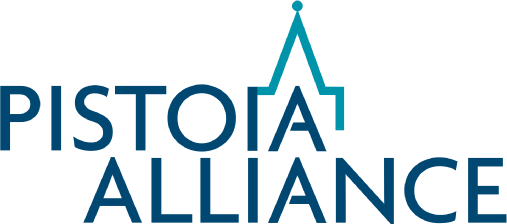Boston, 25 February, 2020 The Pistoia Alliance, a global, not-for-profit alliance that works to lower barriers to innovation in life sciences R&D, today released the latest Unified Data Model (UDM) file format, Version 6, supported by funding from Biovia, Elsevier, GSK, Novartis, and Roche (recently joined by BMS). V6 delivers a stable foundation for the collection and exchange of reaction data and empowers the community to move forward with its adoption. The release is built upon standard (Allotrope-compatible) vocabularies for units of measure and analytical methods, allowing the systems to be interoperable. As increased adoption of AI and ML in R&D continues, such industry-wide data standards are essential in the move towards the digitally-driven Lab of the Future (LoTF).
“The UDM is exactly the type of essential project the Pistoia Alliance was formed to work on – it enables internal and external collaboration, and ultimately helps to accelerate innovation and discovery,” commented Dr. Steve Arlington, President of The Pistoia Alliance. “Following this latest update, the project is now shifting into a support phase to help companies adopt the UDM model. Most recently we have secured additional funding from BMS to allow us to continue the project to benefit users, and we are pleased to welcome Cynthia Beno from BMS to our steering committee. We are also currently looking for additional funding in order to develop a toolkit that would bring together methods, techniques and literature to support the adoption of the UDM. If any companies would like to be involved, we encourage you to get in touch.”
The latest update of the UDM looks to primarily improve the semantics and validation of data. This is important in R&D when acronyms and words can be interchanged. Without alignment on terms and data models, great opportunities to see trends or wider patterns are missed. Standardized harmonization of data is especially important as we are seeing increased adoption of AI, and machine and deep learning, which are reliant on high-quality data to improve outcomes and predictions. To continue to improve alignment in the future, the Alliance is looking to work more closely with the Allotrope Foundation, to ensure the two systems are complementary and compatible. To help with the adoption of the UDM, Jarek Tomczak will also be presenting on V6 at the upcoming AI for Reaction Outcome and Synthetic Route Prediction conference.
“At Roche, we are very excited to continue to be involved in the UDM project and we recognize its value to the research community” commented Brian Jones, Principal Scientist, Discovery Informatics at Roche and UDM Project Champion. “It is great to have progressed the UDM to this stage, and to now move to supporting and promoting the adoption of the model.”
“It’s fantastic to see the UDM continue to develop under the project team’s stewardship, and to serve the R&D ecosystem. Elsevier donated the original UDM to the Pistoia Alliance and we hope it continues to succeed and promote collaboration in the future,” commented Tim Hoctor, Vice President, Professional Services at Elsevier and board member of The Pistoia Alliance.
Following the success of the UDM project, The Pistoia Alliance is currently developing a new project, SEED, which is complimentary, and will provide guidance on the specifics of connecting a semantically enriched ELN to the FAIR principles, as well as open standards built to enable semantic tools to seamlessly connect to all ELNs. Looking to the future, the UDM project team will continue to support the UDM and look to develop the adoption toolkit. To join the UDM team, help develop the project even further, or for help adopting the UDM in your organization, please get in touch with Gabrielle Whittick (gabrielle.whittick@pistoiaalliance.org) or Jarek Tomczak (jarek.tomczak@pistoiaalliance.org).
–ENDS–
About The Pistoia Alliance:
The Pistoia Alliance is a global, not-for-profit members’ organization made up of life science companies, technology and service providers, publishers, and academic groups working to lower barriers to innovation in life science and healthcare R&D. It was conceived in 2007 and incorporated in 2009 by representatives of AstraZeneca, GSK, Novartis and Pfizer who met at a conference in Pistoia, Italy. Its projects transform R&D through pre-competitive collaboration. It overcomes common R&D obstacles by identifying the root causes, developing standards and best practices, sharing pre-competitive data and knowledge, and implementing technology pilots. There are currently over 150 member companies; members collaborate on projects that generate significant value for the worldwide life sciences R&D community, using The Pistoia Alliance’s proven framework for open innovation.
Media Contacts:
Spark Communications
+44 207 436 0420
pistoiaalliance@sparkcomms.co.uk
Tanya Randall
The Pistoia Alliance
+44 7887 811332
tanya.randall@pistoiaalliance.org
